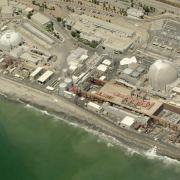Nuclear Power, Mining, Waste, and Nuclear Weapons

The GPCA supports and promotes a healthy environment and clean, affordable energy for present and future generations. Therefore, we oppose the use of nuclear power, which cannot be mined, produced, or operated safely; nor can nuclear reactor wastes be disposed of safely. Contrary to common assumptions, nuclear power generation is not carbon free and its lifecycle greenhouse gas emissions are higher than true renewable energy sources like solar, wind and geothermal. (See Energy, Climate & Community Resilience plank).
Ionizing radiation is inherently injurious to life. Inhalation of the radioactive gas radon is the second highest cause of death from lung cancer next to tobacco smoking in the U.S. https://www.epa.gov/radon/health-risk-radon. Similarly, lung cancer deaths from inhaling radioactive airborne particulate matter occur https://www.iaea.org/Publications/Factsheets/English/radlife. Deaths from bone cancer from ingestion of strontium 90 and from leukemia after atomic blasts and testing are also known https://www.epa.gov/radiation/estimating-radiogenic-cancer-risks. While unavoidable background levels of such radiation exist, we must minimize future releases of human-created radiation into the environment. Any increase in radiation exposure adds to the cumulative damage of living organisms.
Historically, nuclear electric energy was a spin-off from nuclear weapons production for the military. It provided an ideological justification for continued proliferation and “dual use” of nuclear technology around the world. It served to make nuclear fission appear more benevolent, and promoted the myth that nuclear power was cheap and safe. It is neither. Ironically, any nuclear reactor can also be used as a nuclear weapon if targeted by military attack.
High level nuclear waste can remains highly radioactive for tens of thousands of years and even if it can be isolated geologically in salt caves, deep shafts, or the like, the problem of tracking, documenting and containing it for generations to come is untenable.
The Green Party calls for a halt to nuclear waste contamination, to the continued production of nuclear wastes and weapons, and advocates nuclear weapon disarmament (See the Disarmament plank).
- Halt mining and refining of uranium for all uses other than necessary medical treatments. The mining and refining cannot be made safe for workers, communities or wildlife, and much of the mining also occurs on indigenous peoples' lands in the Americas and on other continents.
- Halt all U.S. research and development of new nuclear weapons systems and accelerate dismantling existing stocks. End the U.S. “Stockpile Stewardship” program. Ban and decommission all nuclear powered military machines.
- Stop U.S. involvement in international proliferation of nuclear weapons by the U.S. government signing of the Treaty on the Non-Proliferation of Nuclear Weapons of 1968, ratifying a meaningful Comprehensive Test Ban Treaty, and restoring all relevant treaties that it has abandoned. (see the Disarmament plank).
- Adopt policies for the safest possible storage of existing radioactive materials, ban shallow land disposal and incineration of all radioactive wastes, and discontinue attempting their "disposal" in land or ocean repositories.
- Disallow "deregulation" of any level of wastes to "Below Regulatory Concern" (BRC) status, or their use in consumer products.
- Rapidly phase out the production of electric power from nuclear sources, decommission all existing nuclear power plants (such as Diablo Canyon in California), and ban the construction of any new nuclear power plants to minimize ionizing radiation exposure. The military targeting of nuclear and nonnuclear power plants and their infrastructure has resulted in destructive and lethal consequences.
- Ban the use of “once-through cooling” of nuclear reactors, nuclear power plants, and other power plants.
- Curtail the medical overuse of ionizing radiation and radioactive isotopes in diagnostic and treatment procedures, and increase research for alternatives such as non-ionizing light emitting molecular labels. Invest in research to minimize the doses of radiation therapy and focus its use to cases where it is essential to prolong and save human lives.
- Overturn the federal Price-Anderson Nuclear Industries Indemnity Act of 1957 (last renewed in 2005), which limits the liability of the nuclear industry in the event of nuclear accidents. Stop its projected renewal in 2026.
- Hold all nuclear power producers responsible in perpetuity for managing the radioactive wastes they generate, and establish strong, enforceable penalties for radioactive contamination of the environment.
- Establish independent environmental and on-person monitoring networks for all military and civilian nuclear facilities as well as biomonitoring.
- Ban irradiation of food products.
- Ban nuclear materials in international transportation and trade, as well as aboard crafts launched into space and/or using the Earth in gravity-assist space craft maneuvers.
- Limit the use of radioactive materials in science except under state of the art standards and for scientific monitoring techniques.
- Encourage local communities and governments to establish legally binding nuclear-free zones.
- Ban all use of radioactive materials in the manufacture and use of weapons and military munitions (such as the use of “depleted” uranium) and prohibit the use of ionizing radiation used as a weapon or in crowd control.
- Designate all U.S. sites containing high-level nuclear waste as Superfund sites, and place all of them on the National Priorities List.
(Amended and approved by the GPCA online General Assembly on October 21, 2023)




